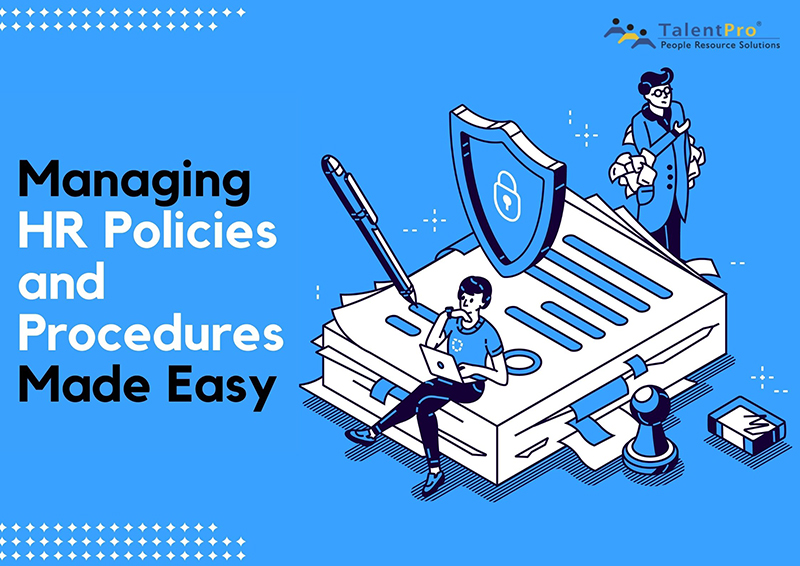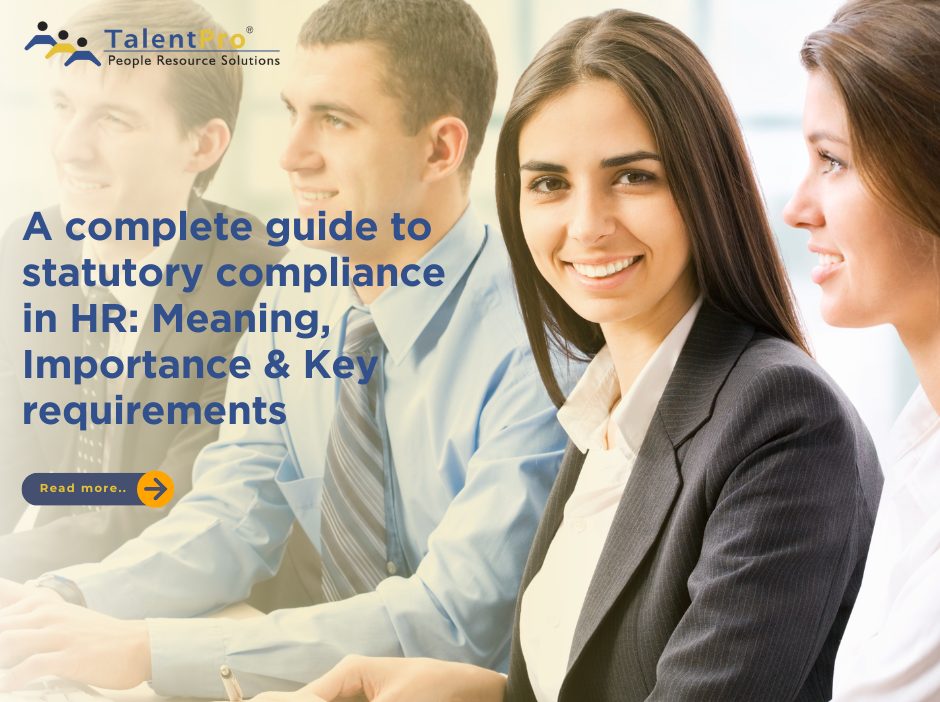It is essential to establish a reliable framework of guidelines that support efficient people management in any business organization. This calls for appropriate HR policies and procedures. These policies and procedures set the guidelines for various HR services-related aspects such as selection, recruitment, on boarding, timesheet management, and training, among other things.
The Need for Formulating and Implementing Effective HR Policies and Procedures
Any contemporary business having employees can significantly benefit from the proper implementation of HR policies. These policies and procedures, when crafted and rolled out in a business-specific manner, enable the organization’s employees to better understand what is expected of them. Business owners and managerial staff can manage their teams efficiently and with transparency.
The Role of HR Policies in the Modern Business Organizations
HR policies and procedures are not something enforced by governmental agencies or laws. But they are based on legal regulations related to labor laws and other laws associated with running a business.
HR policies serve the crucial purpose of serving as the reference point in the workplace. These help in developing industry best HR management practices and empower the managers to make appropriate decisions regarding the organization’s workforce. HR procedures, on the other hand, describe precisely the course of action that needs to be taken in accordance with the set policies. The needs of each business being unique, it is essential to develop specific individual set of HR policies that align with the organization’s objectives and business type.
How Do HR Policies and Procedures Help Businesses?
Partnering with reliable HR Services will help entrepreneurs and companies to set HR policies relevant to their operation. HR Management becomes a lot easier when you delegate the implementation of HR policies to professional HR Services. The following are a few of the key instructions provided in effective HR policies:
- Expectations from the part of the employer – what employees have to do and what they are not supposed to do.
- The way of discharging the responsibilities – how each employee has to perform their specific duties and what needs to be avoided.
- The scope of decision-making – what decisions can be made by each employee and what does not fall within their domains.
- Practices and activities list – which are the specific activities allotted to a particular job profile and which are the ones that they cannot perform.
Read more: HR Policies: Best Practices For Start-Ups In India
Implementing and Managing HR policies and Ensuring that Procedures are Adhered to
- Ensure that all of the HR policies are aligned with your business objectives: It is essential that your HR policies and procedures are in line with the vision and values of your business. They must consider the size of your business and the available resources while nurturing your organization’s culture.
- Communication of policies is critical to HR Management: Employees of an organization must be well aware of the specific procedures and practices. The policies and procedures can be effectively conveyed through the employee handbook, notice boards, and digital means such as emails.
- Proper enforcement of rules and regulations: Taking essential steps to enforce the policies and practices is a major part of effective HR management.
- Keep track of the changing legal provisions: Laws associated with labor and industry standards keep evolving continuously according to the times. Entrusting your HR management activities to experienced HR Services will help you to keep abreast of changes. This way, you can be assured of staying compliant with the necessary regulations, thus avoiding legal liability.
Wrap-Up
HR policies and procedures act as the framework that helps a business organization to regulate the behavior of not only its employees but also the supervisors or managers.











